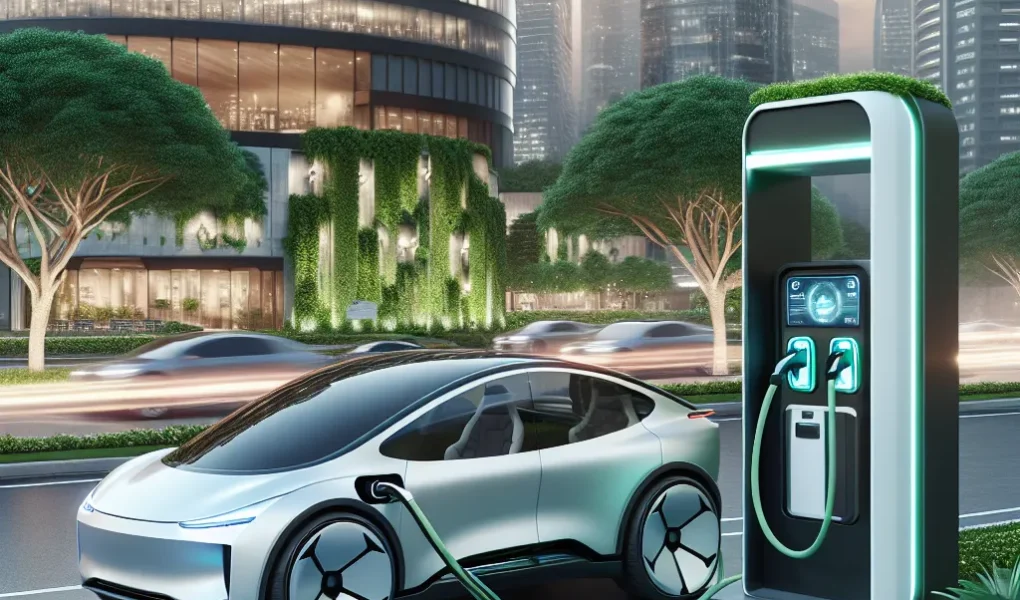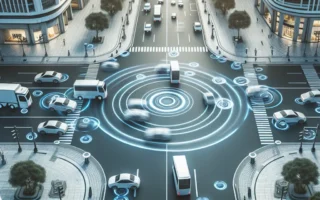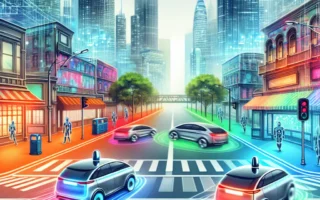The Growing Popularity of Electric Vehicles
Electric vehicles (EVs) are swiftly gaining popularity as a sustainable transportation option for the future. With a growing emphasis on reducing carbon emissions and combating climate change, more and more consumers are turning to electric vehicles as a greener alternative to traditional internal combustion engine cars.
The surge in the popularity of electric vehicles can be attributed to several factors. Firstly, advancements in battery technology have significantly improved the range and performance of EVs, alleviating concerns about limited driving range. Additionally, the development of a robust charging infrastructure has made it more convenient for consumers to own and operate electric vehicles, further boosting their appeal.
Furthermore, government incentives and initiatives aimed at promoting the adoption of electric vehicles, such as tax credits, rebates, and investment in charging infrastructure, have played a pivotal role in driving their growing popularity. As a result, more automakers are expanding their electric vehicle offerings, introducing new models with diverse features to cater to the evolving needs of consumers.
Moreover, the environmental benefits of electric vehicles, including lower greenhouse gas emissions and reduced air pollution, have resonated with an increasing number of environmentally conscious consumers. This shift towards sustainable transportation reflects a broader societal commitment to reducing the carbon footprint and fostering a cleaner, greener future.
In conclusion, the surging popularity of electric vehicles signifies a substantial shift towards sustainable and eco-friendly transportation. As EV technology continues to advance, and as more consumers recognize the environmental and economic advantages of electric vehicles, their prevalence in the automotive market is poised to expand even further in the coming years.
Advancements in Battery Technology for Sustainable Transportation
The future of electric vehicles and sustainable transportation is heavily reliant on advancements in battery technology. As the demand for electric vehicles continues to rise, there is a strong emphasis on developing batteries that offer improved energy density, faster charging capabilities, longer lifespan, and increased safety measures.
Lithium-ion batteries have been the primary choice for electric vehicles, but researchers and manufacturers are actively exploring alternative battery chemistries such as solid-state batteries and lithium-sulfur batteries. Solid-state batteries offer the potential for higher energy density and enhanced safety by replacing the liquid electrolyte with a solid one. On the other hand, lithium-sulfur batteries have the potential to surpass the energy density of traditional lithium-ion batteries while using more abundant materials.
Furthermore, rapid advancements in battery management systems and thermal management technologies are contributing to the efficiency and longevity of electric vehicle batteries. These systems help optimize the performance of the battery pack, monitor individual cell health, and regulate temperature to ensure safe operation, particularly during fast charging and discharging.
Overall, the continuous evolution of battery technology is paving the way for more sustainable transportation options. With ongoing research and development efforts, the future of electric vehicles looks promising, offering a greener and more efficient means of transportation for the years to come.
Infrastructure Challenges and Solutions for Electric Vehicle Adoption
The future of electric vehicles and sustainable transportation is promising, but there are significant infrastructure challenges that need to be addressed for widespread electric vehicle adoption to become a reality. One of the key challenges is the need for a comprehensive charging infrastructure to support the growing number of electric vehicles on the roads. Without a reliable and accessible network of charging stations, range anxiety and inconvenient recharging processes may deter potential electric vehicle owners.
To overcome this challenge, governments and private companies are investing in the development of charging infrastructure. This includes the expansion of public charging stations in urban areas, along highways, and at workplaces. Additionally, fast-charging technologies are being implemented to reduce charging times significantly, making electric vehicles more convenient for long-distance travel.
Another infrastructure challenge is the upgrade of power grids to handle the increased demand from electric vehicles. The integration of smart grid technologies and the use of renewable energy sources can help mitigate the impact of charging on the electricity grid. By leveraging advanced energy management systems, it is possible to optimize the charging process to minimize strain on the grid during peak hours.
In addition to charging infrastructure, the deployment of battery swapping stations could offer a solution to the lengthy charging times associated with electric vehicles. This innovative approach allows drivers to exchange depleted batteries for fully charged ones, reducing the time spent waiting for a recharge.
In conclusion, addressing infrastructure challenges is crucial for the widespread adoption of electric vehicles. By investing in a comprehensive charging network, upgrading power grids, and exploring innovative solutions such as battery swapping, we can pave the way for a sustainable and efficient transportation system powered by electric vehicles.
The Impact of Electric Vehicles on the Automotive Industry
Electric vehicles (EVs) have been gaining popularity worldwide, and their impact on the automotive industry is significant. The shift towards electric vehicles is driven by the increasing awareness of environmental issues and the push for sustainable transportation. As a result, automakers are investing heavily in the development of electric vehicles, leading to a transformation in the industry.
One of the key impacts of electric vehicles on the automotive industry is the shift towards electrification. This shift has forced traditional automakers to rethink their strategies and prioritize the development of electric vehicles. In response to this trend, major automotive companies are expanding their electric vehicle lineup and investing in battery technology to improve the range and performance of EVs.
Furthermore, the growing demand for electric vehicles has led to a rise in the development of charging infrastructure. With more charging stations being installed globally, the barrier to entry for electric vehicle adoption is gradually diminishing. This infrastructure development is not only driven by automakers but also by governments and private companies looking to support the widespread adoption of electric vehicles.
As the automotive industry continues to embrace electric vehicles, there are also implications for the workforce. The shift towards electrification has created a demand for new skill sets and expertise in areas such as battery technology, electric propulsion systems, and software development for vehicle integration. This has led to a shift in the job market within the automotive industry, with a growing demand for professionals with knowledge and experience in electric vehicle technologies.
In conclusion, the impact of electric vehicles on the automotive industry is substantial and far-reaching. The shift towards electrification is driving innovation, investment, and changes in the workforce, shaping the future of sustainable transportation.
The Role of Government Policies in Shaping the Future of Sustainable Transportation
Government policies play a crucial role in shaping the future of sustainable transportation, especially in the context of electric vehicles (EVs). As the world seeks to reduce carbon emissions and combat climate change, many governments are implementing policies to promote the adoption of electric vehicles and sustainable transportation infrastructure. These policies include incentives such as tax credits for EV purchases, subsidies for charging infrastructure development, and targets for reducing greenhouse gas emissions from the transportation sector.
Furthermore, regulations aimed at phasing out internal combustion engine vehicles in favor of electric vehicles are becoming more common. Countries like Norway, the Netherlands, and the UK have set ambitious targets to ban the sale of new petrol and diesel cars in the coming years, while several other nations have proposed similar measures. These regulatory actions not only accelerate the shift towards electric vehicles but also drive innovation in battery technology and charging infrastructure.
Government investment in research and development also plays a significant role in advancing sustainable transportation. Funding for battery technology, renewable energy sources, and smart grid infrastructure contributes to the growth of the EV market and reduces barriers to adoption. Additionally, incentives for automakers to produce low-emission vehicles and meet fuel economy standards further drive the development and affordability of electric vehicles.
In conclusion, government policies act as a cornerstone in the transition towards sustainable transportation and the widespread adoption of electric vehicles. By providing incentives, setting targets, and investing in research, governments worldwide can influence consumer choices, drive technological advancements, and ultimately shape a more sustainable future for transportation.



